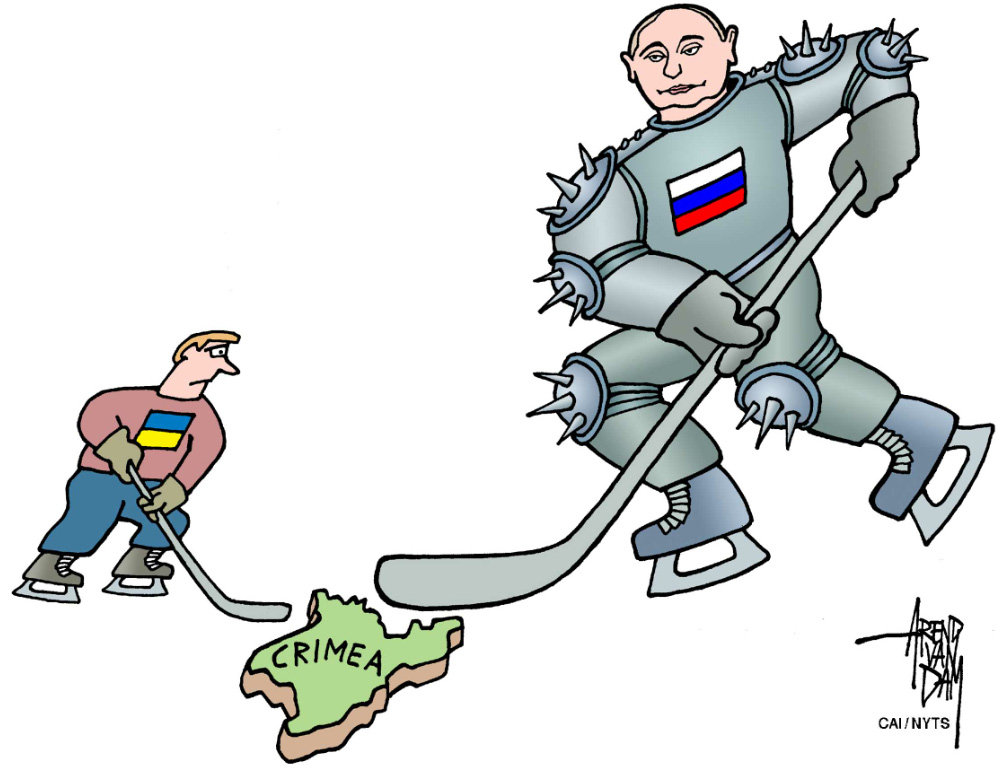As European leaders engage in shuttle diplomacy to still the armed conflict in eastern Ukraine, Crimea, where the Russian onslaught began almost a year ago, has become all but forgotten. It isn't the subject of any talks, and the international sanctions imposed on Russia for annexing the Ukrainian peninsula are light compared to the ones stemming from later phases of the conflict. Yet Crimea provides a key to understanding the crisis and its potential resolution: Ultimately, it's all about how the people in disputed areas see both Russia and Ukraine.
Ukrainian political scientist Taras Berezovets, a Crimea native, recently started an initiative he called Free Crimea, aided by the Canada Fund for Local Initiatives and aimed at building Ukrainian soft power on the peninsula. He started by commissioning a poll of Crimean residents from the Ukrainian branch of Germany's biggest market research organization, GfK. The poll results were something of a cold shower to Berezovets.
GfK Ukraine's poll wasn't based on actual field work, which is understandable, since a Ukraine-based organization would have a tough time operating in today's Crimea, which is rife with Russian FSB secret police agents and ruled by a local government intent on keeping dissent to a minimum. Instead, it conducted a telephone poll of 800 people in Crimea.



















With your current subscription plan you can comment on stories. However, before writing your first comment, please create a display name in the Profile section of your subscriber account page.